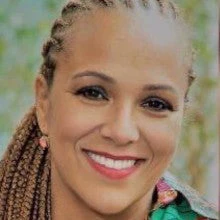 Burundi Blue Soap
Burundi Blue Soap
As elsewhere in the world, Burundi has not been spared from COVID-19. The first case was reported in March 2020 and as of August 26, 2020, the country had 431 cases, including one officially reported death. Similar to other African countries, the evolution of the pandemic has not seen the same dramatic progress as has been observed in Asia, Europe or America. While many theories attempt to explain this phenomenon, the medical community agrees on the three essential pillars for containing disease transmission: regular hand washing with soap and water (or a hydro-alcoholic solution), wearing a mask, and physical distancing. The Burundian authorities, advised by a scientific committee headed by Prof. Théodore Niyongabo, invited the population to protect themselves by adopting these barrier gestures against the spread of the pandemic.
However, these so-called "simple" measures can present a real development challenge in countries where, for example, access to water and soap is not self-evident. One in three people in the world has no access to water and in Sub-Saharan Africa, nearly 63% of urban populations have difficulty accessing basic water services. In Burundi, a recent health survey conducted by the WHO/UNICEF Joint Monitoring Program showed that only 46% of the Burundian population had access to basic hygiene services while only 6% could afford soap. Citizens have explained that buying soap for personal hygiene only came after feeding the family, sending children to school, and buying small livestock, including a cow.
Nearly 72% of the Burundian population lives below the poverty line, with less than BIF 58,374 per person per month, or less than $31; while a bar of soap costs BIF 300.
Through the Pandemic Emergency Financing Facility (PEF), the World Bank has joined forces with UNICEF, other development actors in Burundi and the private sector to support the government's action in the fight against the spread of COVID-19.
The Blue Soap campaign is a unique initiative that is part of the COVID-19 contingency plan established by the Ministry of Health and the Fight against AIDS. It aims to produce and distribute a soap, whose hygienic qualities linked to its size also has the particularity of lasting longer than conventional soaps sold on the market. Its blue color and engraved price make it immediately recognizable by households. It is thanks to the Savonor SA, an industrial soap producing company, that "blue soap" was made available throughout Burundi at half the usual price [150BIF instead of 300 BIF].
By injecting $2.46 million in funding, the partners were able to subsidize part of the price of the soap, provide handwashing facilities in health facilities, schools, and public spaces, and conduct public awareness and information campaigns. In three months, from June to August 2020, 30 million 110g pieces of soap were sold, reaching more than 7.5 million beneficiaries.
The campaign also aimed to increase income through the sale of this soap to small traders. At a time when informal trade is already suffering from the impacts of the crisis, this contribution is not negligible, and it will be necessary to analyze what other spillover effects this initiative may have generated. In the immediate term, positive results, although anecdotal, have already been observed.
The initiative, with its goal of selling and distributing 40 million bars of soap, ended in September 2020. A rapid impact study, commissioned by the World Bank, will assess not only the impact on the spread of COVID-19, but also, in the long term, on other so-called 'dirty hands' diseases, such as cholera and bacillary dysentery. An awareness-raising campaign on the importance of hygiene measures to prevent other diseases accompanies the initiative to encourage the population to change their behavior and adopt simple actions that can save lives.
With one of the highest population densities in Africa, the implementation of the two other precautions—wearing a mask and physical distancing—remains a challenge that the various economic and social actors have yet to tackle. The "Blue Soap" campaign is intended to be a demonstration of the importance of the synergy needed between the government, the international community and the private sector to meet the development challenges in a country such as Burundi.
It is an example to be replicated. The collaboration between these different actors allowed for a rapid response to an emergency and generates multidimensional impacts in the areas of public health, the economy and the protection of the most vulnerable and which will have effects in the medium and long term. This is undoubtedly an example to be followed in other areas of intervention.
The post-COVID-19 global and African economic recession will inevitably impact the most vulnerable populations. Unfortunately, this will also be the case in Burundi. Even if it is too early to accurately assess the impact of the crisis on economic and social life in Burundi, it is imperative to anticipate measures that will help protect the already highly vulnerable populations from "dirty hand disease. Women and children are the most affected by these scourges."
The crisis engendered by COVID-19 has highlighted the impossibility for a single actor to resolve challenges whose impacts have yet to be evaluated. It has also shown that no one is immune to its effects. It is not only a public health problem. Civil society, youth and women's associations, farmer’s and coffee growers' organizations, and religious authorities also have a role to play. We must all work together against the pandemic.


Join the Conversation